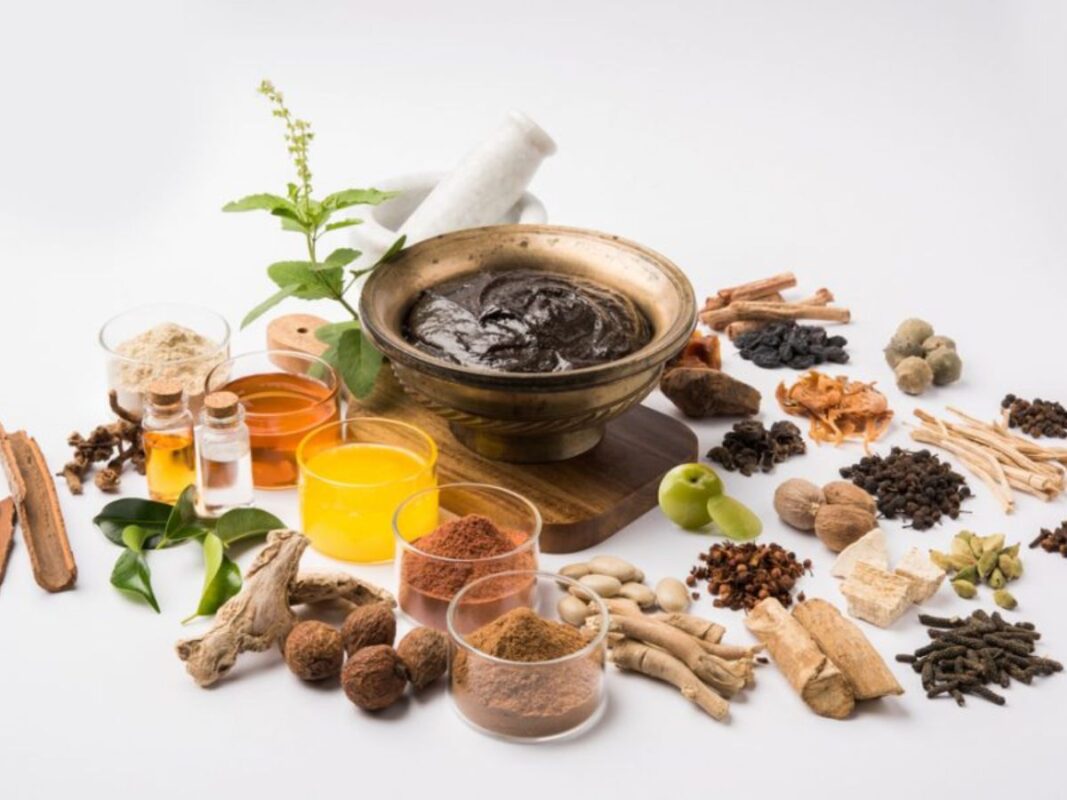In the world of Ayurveda, balance is the key to health—and when that balance is disrupted, our mind and body begin to show signs of distress. One of the most common imbalances occurs in the Kapha dosha, which governs structure, stability, and lubrication in the body. When Kapha is out of balance, it can lead to issues such as fatigue, weight gain, sluggish digestion, and emotional heaviness. Thankfully, Ayurveda offers time-tested tools to bring Kapha back into harmony. In this Simple Guide to Curing Kapha Imbalance in the Ayurvedic Way for Better Health, we’ll explore practical lifestyle changes, dietary tips, and natural remedies that help restore your energy, clarity, and vitality.
Whether you’re new to Ayurveda or simply seeking a gentle reset, this guide breaks down the essentials into easy, actionable steps. From Kapha-pacifying foods and energizing morning routines to detox tips and yoga practices, you’ll discover how small changes can lead to significant transformations—all rooted in the wisdom of Ayurveda.
What is Kapha Dosha?
Kapha dosha meaning: In Ayurveda, the ancient Indian system of natural healing, the human body is governed by three fundamental energies known as doshas: Vata, Pitta, and Kapha. Two of the five components combine to form each dosha, and Kapha is composed of earth and water, endowing it with grounding, stabilising, and nourishing qualities. Kapha is responsible for structure, lubrication, and immunity in the body and plays a crucial role in maintaining emotional calm and physical endurance.
Kapha is characterized by specific qualities: heavy, slow, steady, cold, soft, and oily. These traits are reflected in both the body and mind. For example, a Kapha-dominant person might have a strong, sturdy build, smooth skin, a calm demeanour, and a methodical approach to life. When Kapha is in balance, it promotes strength, compassion, and deep stability. However, when it becomes aggravated, it can lead to several health concerns.
How to balance kapha dosha? Kapha imbalance often arises from a sedentary lifestyle, cold or damp weather, overeating, and consuming heavy, oily, or sweet foods. When aggravated, Kapha can manifest in symptoms such as fatigue, weight gain, nasal and sinus congestion, slow digestion, and emotional sluggishness, including depression or lack of motivation. Understanding the nature of Kapha is the first step in learning how to restore balance and reclaim your energy the Ayurvedic way.
Causes of Kapha Imbalance and Kapha Imbalance Symptoms

Kapha dosha, with its grounding and stabilizing nature, can easily become excessive when particular lifestyle or dietary habits are followed for too long. Understanding the root causes of Kapha imbalance is essential to correcting it and restoring vitality through Ayurvedic practices.
One of the primary causes is overeating or consuming heavy, oily, and cold foods, especially those that are sweet, fried, or dairy-based. These foods mimic the qualities of Kapha and increase their density in the body, leading to sluggishness and weight gain. magiccann canna gummies
Another major contributor is a lack of physical activity. Since Kapha is naturally slow and heavy, a sedentary lifestyle only amplifies those traits, resulting in low energy, poor circulation, and increased lethargy.
Emotional health also plays a role. Emotional suppression or attachment, such as clinging to past experiences or holding in sadness, can stagnate mental and emotional energy, further fueling Kapha’s tendency toward inertia and emotional heaviness.
Lastly, cold and damp climates or seasonal changes—particularly during late winter and early spring—can aggravate Kapha. These environmental conditions mirror Kapha’s cold and moist qualities, causing imbalances that may lead to sinus issues, mucus buildup, or feelings of depression.
By identifying and addressing these causes, you can begin to make mindful changes that promote a more balanced Kapha and a more vibrant, energized life.
Simple Ayurvedic Ways to Cure Kapha Imbalance

Balancing Kapha doesn’t have to be complicated. With a few mindful changes to your diet, daily routine, and lifestyle, you can activate your body’s natural energy and clarity. How to reduce kapha naturally? Below are simple, effective Ayurvedic ways to bring Kapha back into balance and support better health.
A. Kapha-Pacifying Diet
Food plays a central role in managing the Kapha dosha. To reduce heaviness and sluggishness, favour warm, light, dry, and spicy foods that stimulate digestion and metabolism.
- Include: ginger, turmeric, black pepper, mustard seeds, leafy greens, legumes, lentils, barley, and quinoa.
- Avoid or reduce: dairy, refined sugars, fried foods, cold drinks, and overly sweet or salty snacks.
Tip: Switch your morning smoothie with a cup of warm ginger tea or a bowl of spiced porridge to awaken digestion and avoid damp, cold qualities that aggravate Kapha. canna gummies india
B. Daily Routine (Dinacharya) for Kapha Balance
Creating a consistent and energising daily rhythm is key for Kapha types.
- Wake up before 6 AM to avoid the heavy Kapha time of day.
- Practice dry brushing (garshana) and vigorous self-massage with warm sesame oil to improve circulation and remove stagnation.
- Start your morning with pranayama like Kapalabhati (skull-shining breath) or Bhastrika (bellows breath) to stimulate the mind and clear respiratory pathways.
C. Kapha Detox and Herbal Remedies
Periodic cleansing and the right herbs can help eliminate excess Kapha and promote lightness in the body and mind.
- Use Ayurvedic herbs like Trikatu (a blend of ginger, black pepper, and long pepper), Triphala for digestion and detox, and Guggulu for clearing out toxins.
- Try a seasonal Kapha cleanse with kitchari, fseasoned asting—a mono-diet of mung beans and rice with gentle spices—to reset your system gently.
D. Lifestyle Changes
Incorporate habits that bring warmth, movement, and stimulation to counter Kapha’s heavy, cold, and slow qualities.
- Avoid daytime naps, as they can increase lethargy.
- Engage in stimulating, uplifting activities such as dance, music, or social interactions that boost your mood and energy.
- Keep your living environment warm, dry, and well-lit by opening the windows, letting in sunlight, and avoiding dark or damp spaces.
E. Yoga & Exercise for Kapha
Best Ayurvedic medicine for kapha dosha. Movement is medicine for Kapha. Choose dynamic forms of yoga and exercise that generate internal heat and build energy.
- Try fast-paced yoga styles such as Vinyasa or Power Yoga.
- Focus on chest openers, backbends, twists, and dynamic standing poses to activate the lungs and uplift the mood.
- Practice regularly, even daily, to keep Kapha in check and maintain vitality.
By embracing these simple Ayurvedic principles, you can naturally rebalance your kapha dosha imbalance and experience improved digestion, clearer thinking, enhanced energy, and emotional lightness—paving the way for better health and well-being. canna gummies
Top 5 Ayurvedic Tips to Stay Kapha-Balanced Year-Round

Maintaining Kapha balance isn’t just a seasonal task—it requires year-round mindfulness to prevent the buildup of excess heaviness, lethargy, and emotional stagnation. Here are five powerful Ayurvedic tips that help keep Kapha in check and support long-term health and vitality.
1. Stick to a Consistent Routine
Kapha thrives on structure and discipline. A regular routine helps prevent inertia and encourages a steady flow of energy throughout the day. Aim to wake up before 6 AM, eat meals at consistent times, and avoid sleeping in or lounging during the day. Regular sleep and activity patterns counter Kapha’s natural tendency toward sluggishness.
2. Eat Only When Hungry & Avoid Emotional Eating
Kapha digestion tends to be slow, so it’s crucial to eat only when you’re genuinely hungry. Overeating or snacking out of boredom or emotional need can lead to further imbalance. Focus on light, warm meals and avoid heavy or rich foods unless truly needed. Eating with awareness improves digestion and increases vitality.
3. Use Stimulating Scents like Eucalyptus or Camphor
Aromatherapy is an effective way to balance Kapha’s heavy and dull qualities. Uplifting, invigorating scents like eucalyptus, camphor, rosemary, or peppermint can stimulate the senses, open the sinuses, and boost mental clarity. Use essential oils in a diffuser or apply diluted oils to pulse points to feel refreshed and focused.
4. Favor Dry Saunas or Warm Baths
Kapha is cold and moist by nature, so it responds well to heat and dryness. Dry saunas help eliminate excess moisture and toxins from the body, while warm baths infused with ginger or Epsom salts relax the muscles and encourage circulation. These practices are especially helpful in cold or damp weather when Kapha tends to accumulate.
5. Practice Breathwork and Meditation for Clarity and Focus
Kapha imbalance often clouds the mind, leading to emotional dullness or mental fog. Daily pranayama (breathwork)—like Kapalabhati or Bhastrika—helps energize the system and clear the mind. Follow this with meditation to promote mental clarity, emotional balance, and deeper self-awareness. Just 10–15 minutes daily can make a noticeable difference.
By incorporating these Ayurvedic tips into your lifestyle, you can keep Kapha balanced all year long—enhancing your energy, mood, and overall health naturally and effectively. मन्मथ रस टैबलेट के फायदे
When to Seek Ayurvedic Help
While many Kapha imbalances can be managed through simple lifestyle and dietary changes, there are times when professional support becomes essential. If, in spite of your efforts, your symptoms worsen or continue—such as ongoing chronic fatigue, stubborn weight gain, persistent respiratory issues, or feelings of depression and emotional dullness—it may be time to consult an Ayurvedic practitioner.
A qualified Ayurvedic expert can conduct a comprehensive dosha assessment, evaluating your unique constitution and the root causes of your imbalance. This personalized approach goes beyond surface-level kapha dosha symptoms, offering deeper insights into your health patterns. Based on the findings, the practitioner may suggest customized herbal protocols, dietary adjustments, detox plans, and lifestyle modifications tailored to your body and mind.
Seeking Ayurvedic help early on can prevent mild Kapha imbalances from developing into more serious health concerns. If you’re feeling stuck or overwhelmed, an experienced practitioner can guide you back toward balance, clarity, and renewed vitality using time-tested Ayurvedic wisdom.
Conclusion
Restoring Kapha balance is essential for unlocking better energy, digestion, and mental clarity. When Kapha is in harmony, you feel lighter, more motivated, and emotionally balanced. Ayurveda offers a gentle yet powerful path to achieve this through mindful adjustments in diet, routine, lifestyle, and self-care.
Start small—swap cold foods for warm, spicy meals, wake up a little earlier, or add energizing yoga and breathwork to your mornings. These simple steps can lead to profound shifts in how you feel, think, and live.
FAQs:
1. What are the signs of a Kapha imbalance?
Common signs include fatigue, weight gain, sinus congestion, slow digestion, depression, and a general sense of heaviness in the body and mind.
2. What causes Kapha dosha to become aggravated?
Kapha imbalance can be triggered by a sedentary lifestyle, overeating heavy or oily foods, cold or damp climates, and emotional suppression or attachment.
3. How long does it take to balance Kapha using Ayurveda?
Everyone is different, but with consistent lifestyle and dietary changes, many people notice improvements within a few weeks. Severe imbalances may require longer-term support and guidance from an Ayurvedic practitioner.
4. Can I follow a Kapha-balancing routine all year round?
Yes! While Kapha tends to accumulate more in late winter and early spring, maintaining a Kapha-friendly lifestyle year-round helps prevent imbalances and promotes sustained health.
5. Are there specific herbs that help reduce Kapha?
Yes. Trikatu, Triphala, and Guggulu are commonly used Ayurvedic herbs that support digestion, detoxification, and the removal of excess Kapha from the body.




